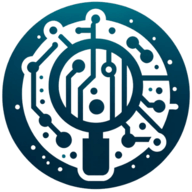8 Red Flags to Watch for in Technical Resumes
Navigating the competitive tech industry requires a standout resume, yet it's easy to fall into common pitfalls. This article demystifies the technical resume process, offering expert-backed strategies to highlight achievements and skills effectively. Readers will gain invaluable advice on what to showcase and what to avoid, directly from leaders in the field.
- Quantify Achievements to Demonstrate Real Impact
- Honesty Matters: Avoid Overstating Technical Skills
- Continuous Learning: Essential for Tech Professionals
- Showcase Measurable Results, Not Just Tasks
- Link Technical Skills to Practical Outcomes
- Versatility in Digital Marketing Platforms Crucial
- Practical Experience Trumps Theoretical Knowledge
- Big Picture Understanding Enhances Engineering Value
Quantify Achievements to Demonstrate Real Impact
When reviewing technical resumes, one major red flag I always look for is a lack of quantifiable achievements. Too often, I see resumes that list skills and responsibilities but fail to show the impact of those actions in measurable terms. Whether it's in the form of increased efficiency, cost savings, or project success rates, not providing concrete data leaves me questioning the true value the candidate has brought to previous roles.
For example, if a developer mentions "improving system performance" without specifying by how much or over what period, it's hard to gauge the scope of their contribution. Technical roles demand results that can be tracked and demonstrated, and without this, it's difficult to assess whether the candidate's experience truly aligns with the needs of the role.
As someone who has reviewed thousands of technical resumes, I always advise clients to showcase their impressive accomplishments using numbers. Employers want to know what you've done and how well you did it. Without these insights, even an experienced candidate could miss out on opportunities that highlight their true potential.

Honesty Matters: Avoid Overstating Technical Skills
One red flag I never overlook when reviewing technical resumes--even from experienced professionals--is when candidates overstate their abilities or list skills they cannot genuinely defend. I've encountered resumes packed with high-level technical buzzwords, but when candidates are asked to elaborate in interviews, it becomes clear they lack the hands-on experience to back it up. This immediately casts doubt on the entire application.
I recall one particular situation where a hiring manager greeted a candidate in a foreign language the applicant had claimed fluency in on their resume. The candidate froze, exposed in the first moments of the interview. That moment underscored how damaging even a small exaggeration can be. It isn't just about getting tripped up on a technicality--it's about eroding trust before you even make it to the whiteboard.
Misrepresentation isn't just risky; it creates downstream issues. When companies are pressed to deliver complex projects with leaner teams, they can't afford to onboard someone whose resume reads like a marketing brochure. In my experience, hiring managers aren't just validating technical proficiency--they're evaluating integrity. A resume that stretches the truth signals poor judgment and an unreliable partner for high-stakes work.
In today's competitive job market, where companies need both expertise and trustworthiness, candidates who play fast and loose with the truth quickly find themselves on the wrong side of the hiring decision.

Continuous Learning: Essential for Tech Professionals
Our company, Softanics, is quite small, and even though I am the CEO, I still occasionally do programming myself and conduct technical interviews for developers. One red flag for me is something a colleague of mine once called "experience repeated 10 times in a row." When I asked him to elaborate, he explained that there is no real difference between someone who has worked on something for one year and another person who has worked on the exact same thing (the same task!) for 10 years in a row.
For example, we write our products in C++, which has several versions (called standards). While it's normal for a company to use an older standard since you can't constantly rewrite everything just to match the newest one, it's not acceptable when a programmer shows no interest in what's happening with the language. If someone does the same thing for 10 or even 20 years without learning anything new, that's a definite red flag.
I now believe that a resume should reflect that the candidate hasn't just repeated the same task but has moved forward, learning new things each year and applying that "new" knowledge in practice.

Showcase Measurable Results, Not Just Tasks
One red flag I always look for when reviewing technical resumes, even from experienced candidates, is a lack of specific, quantifiable achievements. If a candidate simply lists tasks or responsibilities without demonstrating how their work impacted the project or organization--such as "improved system performance by 20%" or "led a team of 5 developers to deliver a product ahead of schedule"--it raises concerns for me. This is a dealbreaker because it suggests the candidate may not be results-oriented or doesn't fully understand how to communicate their contributions effectively. In tech, it's not just about knowing how to do the work; it's about showing how your work moves the needle and drives value. I've learned that clear, measurable results are key to assessing whether someone truly made an impact in their previous roles.

Link Technical Skills to Practical Outcomes
A significant red flag when reviewing technical resumes is the absence of specific examples demonstrating a candidate's skills and achievements. Many applicants list technologies and buzzwords without illustrating how they've applied them in real-world situations. For instance, it's common to see resumes where someone claims expertise in a programming language like Python but fails to describe the nature of the projects they worked on or the impact of their contributions.
For me, this lack of context is a dealbreaker because it suggests that the candidate might not genuinely understand the technologies they've listed or may struggle to apply their technical skills effectively in practical scenarios. It's crucial for candidates to link their technical skills to tangible results, such as optimizing a system that led to a 20% increase in efficiency, or developing an application that solved a specific business problem. This level of specificity not only makes their experience more concrete but also demonstrates a candidate's ability to contribute meaningfully to a team or project. Such detail-oriented submissions often indicate a thoughtful and competent professional.

Versatility in Digital Marketing Platforms Crucial
When reviewing resumes, I prioritize candidates' versatility with various digital marketing platforms. In the fast-evolving affiliate marketing industry, a candidate's limited exposure to diverse tools and methodologies can be a significant dealbreaker. This is because adaptability is crucial for navigating constant changes, such as algorithm updates from platforms like Google.

Practical Experience Trumps Theoretical Knowledge
A critical red flag in technical resumes is the absence of hands-on experience with relevant tools and technologies. While educational qualifications matter, insufficient practical experience can signal a candidate's difficulty in applying their skills effectively in real-world scenarios. For instance, a candidate may claim proficiency in data analysis software but lack documented projects showcasing its application, raising concerns about their ability to contribute to data-driven decision-making in a business development role.

Big Picture Understanding Enhances Engineering Value
When reviewing technical resumes, one potential red flag I always look out for is a lack of evidence in the resume bullet points that demonstrates a bigger picture understanding of how their work ties into or impacts larger business or product goals. The best engineers I've worked with are product and business-minded, ensuring they always understand the big picture of their work and how it will impact users.
I've found that the difference between engineers who see the forest and those who just focus on trees is significant. Those who think big picture and put themselves in the shoes of the user will always build much better products than those who don't. They will proactively adjust implementation details to provide a better user experience in ways that non-engineers (including myself) often don't even consider.
Tiny details can make or break the user experience of a product. An engineer who doesn't approach their work thoughtfully and simply executes as instructed can make a product significantly worse. This isn't to say that a technical resume lacking evidence of bigger picture understanding will always indicate a bad fit—they may just be poor at writing resumes. However, when sifting through hundreds of applicants, I'm much more inclined to prioritize those who clearly convey a big picture mentality.


